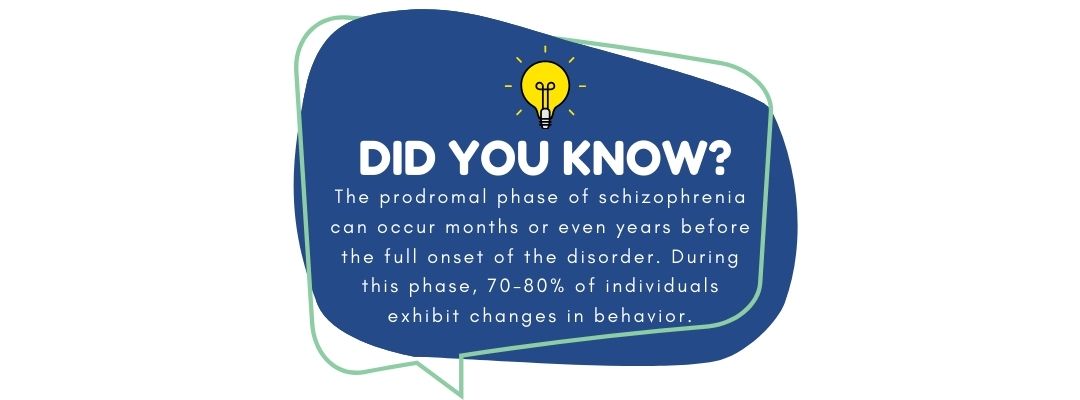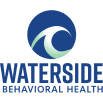Can Schizophrenia be Diagnosed During the Prodromal Phase? Understanding Early Identification and Challenges
Can Schizophrenia be diagnosed during the prodromal phase? The early signs of schizophrenia can be subtle and hard to identify. Many individuals experience changes in thoughts, emotions, and behaviors before a formal diagnosis occurs. Schizophrenia can be diagnosed during the prodromal phase, but it often depends on careful evaluation by mental health professionals. Recognizing these early symptoms is crucial, as it allows for timely intervention and support.
This blog post will explore the challenges of diagnosing schizophrenia in its early stages, known as the prodromal phase. By understanding the nuances of this phase, readers can gain insight into the importance of awareness and proactive measures for mental health. Addressing myths and clarifying the diagnostic process can empower individuals and their families to seek help.
Knowledge about the prodromal phase can significantly impact treatment options and outcomes. As awareness grows, so does the potential for better management of schizophrenia, leading to improved quality of life for those affected.
Key Takeaways
- Early detection of schizophrenia can lead to better treatment outcomes.
- The prodromal phase includes subtle but significant symptoms.
- Mental health professionals play a key role in accurate diagnosis during this phase.
 Source: American Psychiatric Association
Source: American Psychiatric Association
Understanding Schizophrenia
Schizophrenia is a complex mental health condition that affects how a person thinks, feels, and behaves. It is marked by a range of symptoms and is characterized by different stages of development over time.
Defining Schizophrenia
Schizophrenia is a serious mental disorder that impacts how individuals perceive reality. It typically emerges in late adolescence or early adulthood. Those with schizophrenia may face challenges in distinguishing between what is real and what is not. This condition can lead to severe disruptions in daily functioning and relationships.
While the exact cause of schizophrenia is not known, a combination of genetic, brain chemistry, and environmental factors are believed to contribute to its development. Diagnosing schizophrenia can be challenging, as it often mimics other mental health issues.
Symptoms and Types
Symptoms of schizophrenia can be divided into three main categories:
- Positive Symptoms: These include hallucinations, delusions, and thought disorders. Hallucinations often involve hearing voices or seeing things that are not present.
- Negative Symptoms: These symptoms might include lack of motivation, withdrawal from social life, and reduced emotional expression.
- Cognitive Symptoms: These can affect memory, attention, and the ability to process information.
There are several types of schizophrenia, including paranoid, disorganized, and catatonic schizophrenia. Each type presents unique symptoms and challenges for diagnosis and treatment.
Stages of Schizophrenia
Schizophrenia develops in stages, which include:
- Prodromal Stage: This early phase can show mild symptoms like social withdrawal, changes in mood, and unusual thoughts.
- Active Phase: This is when more severe symptoms manifest, including hallucinations and delusions, leading to significant impairment in daily life.
- Residual Phase: Symptoms decrease, but some negative symptoms may linger, impacting the person’s ability to function fully.
Recognizing these stages helps in understanding the progression of the disorder. Early identification during the prodromal phase is crucial for effective intervention and management.
Prodromal Phase and Diagnosis: Can Schizophrenia be Diagnosed During the Prodromal Phase?
The prodromal phase of schizophrenia marks an early period where symptoms start to appear but are not yet severe enough for a full diagnosis. Understanding its characteristics, the challenges faced during diagnosis, and the tools used for assessment is crucial for effective detection and intervention.
Characteristics of the Prodromal Phase
Symptoms during the prodromal phase can be subtle and may resemble other mental health issues. Individuals may experience changes in mood, thinking, or behavior. Common signs include:
- Social Withdrawal: Reduced interest in social activities or relationships.
- Cognitive Disturbances: Difficulty in concentrating or making decisions.
- Altered Perception: Sensitivity to sounds or other sensory inputs.
These signs can be easily mistaken for stress or typical teenage behavior, making early identification challenging. The duration of this phase can vary significantly, ranging from a few weeks to several years.
Challenges in Early Diagnosis
Diagnosing schizophrenia during the prodromal phase poses significant difficulties. The main challenges include:
- Vague Symptoms: Many early symptoms overlap with other mental health disorders, such as mood disorders or anxiety, complicating an accurate diagnosis.
- Lack of Awareness: Patients and families may not recognize these early warning signs, delaying medical consultation.
- Assessment Limitations: Current diagnostic criteria are often not equipped to identify prodromal symptoms, leading to misdiagnoses or missed opportunities for early intervention.
As a result, healthcare providers often need to rely on clinical judgment and patient history, which can sometimes lead to uncertainty.
Assessment Tools and Criteria
Various tools and criteria can assist in identifying prodromal symptoms. Commonly used assessments include:
- The Structured Interview for Prodromal Syndromes (SIPS): This tool helps clinicians evaluate symptoms linked to the prodromal phase.
- Risk Assessment Measures: These assess the likelihood of developing schizophrenia, focusing on factors like family history and behavioral changes.
Healthcare providers often consider a combination of clinical interviews and standardized questionnaires to form a more complete understanding of the individual’s symptoms. Early assessment is key to initiating timely support and possibly reducing the impact of the disorder.
Treatment During the Prodromal Phase
Effective treatment during the prodromal phase of schizophrenia is vital. Early intervention can help reduce the progression of symptoms and enhance overall outcomes. Key strategies include various approaches like medication and support treatments.
Early Intervention Strategies
Early intervention is crucial for those experiencing prodromal symptoms. Programs that provide education about the illness can help individuals and their families understand what is happening.
Support groups can also offer a safe space for sharing experiences and coping strategies. These groups encourage open communication, helping individuals feel less isolated.
Additionally, psychoeducation can empower individuals to recognize early symptoms and seek help sooner. This proactive approach often results in better management of the illness and can significantly improve long-term outcomes.
Pharmacological Approaches
Medication can play an important role during the prodromal phase. Antipsychotics are often prescribed to manage symptoms and prevent the onset of full-blown schizophrenia.
Doctors may choose a lower dose to minimize side effects while still achieving symptom relief. This tailored approach can help ease the transition into the active phase if it occurs.
Monitoring side effects and adjusting medication as needed is crucial. Regular consultations with a mental health provider ensure that the patient receives effective treatment tailored to their needs.
Psychosocial Treatments
Psychosocial treatments are essential for offering support and coping strategies. Cognitive Behavioral Therapy (CBT) can help individuals manage anxiety or depressive symptoms linked to their psychosis risk.
Social skills training is another effective psychosocial intervention. It focuses on improving communication, enhancing relationships, and developing daily living skills.
Family therapy can also be beneficial. It helps family members create a supportive environment while learning how to address and manage the concerns of the individual experiencing prodromal symptoms. This collaborative approach can foster understanding and reduce stress for everyone involved.
Frequently Asked Questions
The prodromal phase of schizophrenia is marked by subtle changes that can signal the onset of the disorder. Understanding the signs, duration, and available interventions can help in early identification and treatment.
What are the identifiable signs during the prodromal phase of schizophrenia?
Signs during the prodromal phase can include social withdrawal, changes in mood, problems with concentration, and unusual thoughts. Individuals may also experience a decline in academic or work performance. These symptoms can often be mistaken for typical teenage behaviors or other mental health issues.
How long is the typical duration of the prodromal phase in schizophrenia?
The duration of the prodromal phase varies widely among individuals. It can last from a few months to several years before more severe symptoms appear. Early recognition can help shorten this phase and improve outcomes.
Which tests are used to identify prodromal schizophrenia?
There is no specific test for diagnosing prodromal schizophrenia. Healthcare providers often use comprehensive interviews and assessments. They may evaluate mental health history, psychological evaluations, and sometimes brain imaging to rule out other conditions.
At what age does the prodromal phase of schizophrenia commonly begin?
The prodromal phase often begins in late adolescence to early adulthood. Many individuals show signs in their late teens or early twenties. Early intervention is crucial during this stage for better management.
How are the symptoms in the prodromal phase different from the active phase of schizophrenia?
Symptoms in the prodromal phase are generally milder and more vague. Individuals may experience anxiety or depression, unlike the active phase, which includes hallucinations and delusions. The shift from prodromal to active can involve a significant increase in symptom severity.
What are the early intervention strategies for schizophrenia during the prodromal stage?
Early intervention strategies include therapy, medication, and support groups. Cognitive-behavioral therapy can address thoughts and behaviors. Medication may be prescribed to manage symptoms before they worsen, making timely intervention important.
Conclusion: Can Schizophrenia be Diagnosed During the Prodromal Phase?
The prodromal phase of schizophrenia offers a critical window for early detection and intervention. Although symptoms during this stage may be subtle and easily mistaken for other issues, recognizing these early warning signs can lead to timely support and significantly improve long-term outcomes. Mental health professionals play a pivotal role in evaluating symptoms, guiding treatment, and providing education for individuals and their families.
By addressing the prodromal phase with a combination of psychoeducation, therapy, and, when necessary, pharmacological interventions, it is possible to reduce the severity and progression of schizophrenia. Greater awareness and understanding of this early stage empower individuals to seek help promptly, fostering hope and improved quality of life for those affected. Early action matters, and proactive measures can make all the difference in managing this complex mental health condition.
You’re not alone, and help is always within reach. Contact us today at (774) 619-7750 and take control over your mental health.




